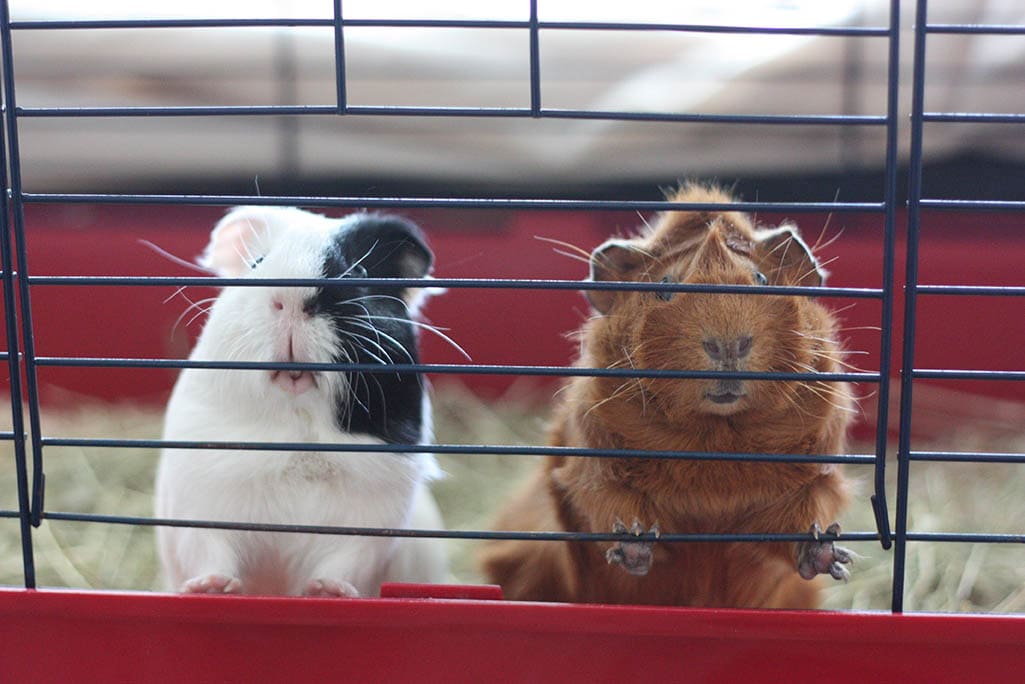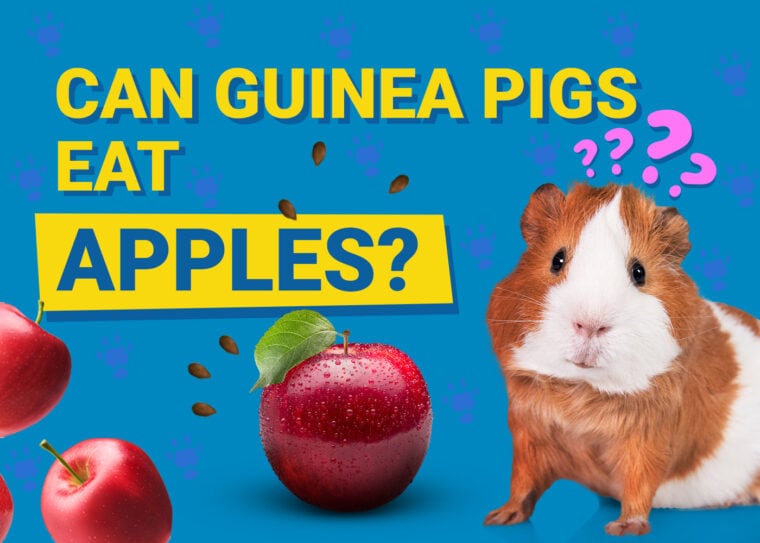
Click to Skip Ahead
Guinea pigs can definitely eat apples! These are beneficial to eat and pack a healthy punch when it comes to a guinea’s nutritional needs, although there are certain aspects of apples that you need to avoid.
Many times, we want to share different kinds of food with our beloved pets. If we have a good meal or snack and they look curious, then why not? However, when it comes to guinea pigs, you need to be informed of their nutritional hazards. There are many things that they can’t eat.
Nutritional Benefits of Apples
It might seem odd to compare humans to guinea pigs, but you can think similarly about their dietary needs. Just as we need a certain amount of different vitamins and other nutrients, so do guinea pigs.
Apples help fulfill some of these nutritional requirements. Vitamin C is one of the most significant nutrients in apples. Guinea pigs typically need 10 mg of vitamin C each day per 2.2 pounds of body weight).
Apples also contain B-complex vitamins, including vitamin pyridoxine, riboflavin, and thiamin.
Although we might prefer it at times, don’t peel the apple if you want it to be as healthy as possible. The skin of an apple has dietary fiber. It aids in digestion, both for humans and guinea pigs.
Apples have other vitamins as well. These include:
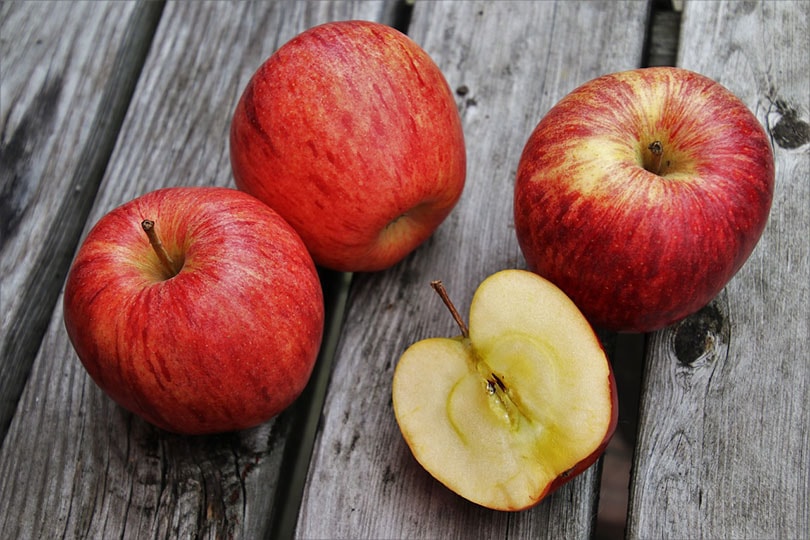
Apple Hazards to Know Before Feeding
Although the flesh and skin of the apple are healthy sources of nutrients for guinea pigs, there are still risks to consider before feeding them this fruit.
The first is the natural sugars found in apples or any fruit. Whenever you feed your guinea pig fruit and other foods not included in their typical dietary plan, monitor the amount of sugar that they receive. Most animal bodies are not designed to process sugar well. In turn, it can make them quite ill and even be a stepping stone toward other more harmful diseases. Since apples have a high concentration of sugars, don’t overfeed them.
The seeds of apples contain a compound called amygdalin. When crushed inside the body, this compound converts into an organic form of cyanide. However, it is worth noting that an apple seed contains a very minute amount of this compound and is highly unlikely to cause any health issues, particularly as a guinea pig may only eat one or two at a time, and very occasionally.
Acidic foods are not suitable for a guinea pig’s overall health. Some apples are more acidic than others, but with any apple, moderate the amount. High amounts of acidic foods can lead to lip sores in guinea pigs.
It is best to not feed your guinea pig cooked apples or any other kind of cooked food. The chemical changes that occur after cooking food are harmful and can harm their digestive system. Cooking also reduces the amount of nutrition in most foods, therefore, it is counterproductive to your guinea pig’s nutritional well-being.
Guinea pigs should only ever have fresh fruits as supplements to a diet that’s almost exclusively (up to 80%–90%) made of good quality hay and fortified pellets designed especially for them (the rest of the diet should be high-quality vegetables).
Recommended Serving Sizes and Methods for Apples
It is critical to feed the correct portion sizes of apples or anything else to an animal as small as a guinea pig.
Don’t feed apples to a guinea pig daily. Their systems won’t have enough time to digest and store all the sugar and other compounds they contain. Instead, pick one or two days a week to give your guinea pig a thin apple slice for a treat.
If you notice after eating the apples that they struggle with diarrhea or bloating, keep an eye on them. It typically shouldn’t last for long, but if it continues for more than a day, talk to your vet.
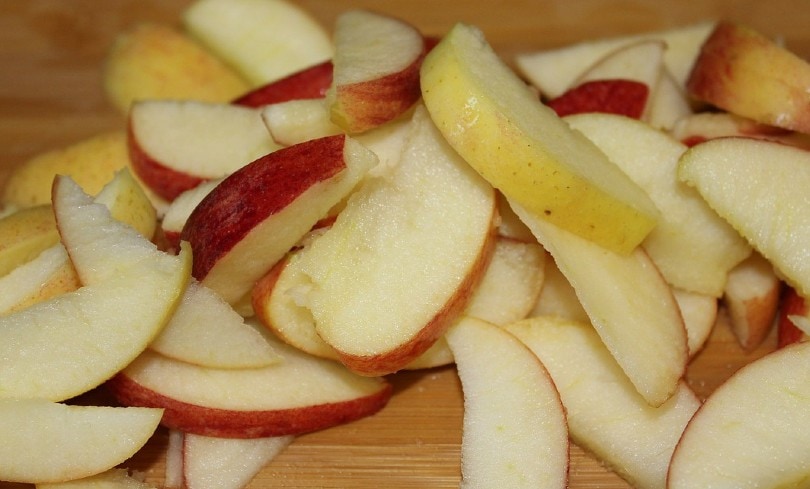
What Age Can Guinea Pigs Start Eating Apples?
Don’t feed baby guinea pigs apples or any other dietary supplement. They should only eat hay and pellets and drink their mother’s milk for proper growth and development. Feeding them foods that contain high amounts of sugar is hard on their tiny bodies.
You can feel safe feeding small amounts of apples to your guinea pig when they are 3–4 months old.
Are Certain Types of Apples Better or Worse for Guinea Pigs?
Not all apples are the same. When it comes to feeding them to your guinea pig, you need to pay attention to what kind you give them because they might favor one instead of another. Not all forms of apples are safe.

Green Apples
Guinea pigs can eat green apples. They are healthy for them, still containing many of the antioxidants and vitamins.
Red Apples
Guinea pigs can eat red apples. They are sweeter and juicier than other kinds of apples, and guinea pigs tend to like them more. Still, don’t let those begging eyes persuade you to up their portions, since this sweetness is exactly what doesn’t sit well with them after too much.
They have all the healthy nutrients typical to apples, and the skin is especially rich in antioxidants.
Crab Apples
Although guinea pigs can eat crab apples, they won’t tend to appreciate them as much. Some people believe that crab apples are toxic to guinea pigs. This is not true, but you should avoid feeding them too much. They should eat fewer crab apples than other kinds of apples.
Before giving a crab apple to your guinea pig, it is best to remove the entire core.
Apple Cider Vinegar
Guinea pigs should not drink apple cider vinegar. The liquid is too acidic for them and quickly causes serious stomach issues.
Some people are proponents of adding a couple of drops of apple cider vinegar to the guinea pig’s water. It supposedly helps heal urinary diseases. Talk to your vet before supplementing their water source with any vinegar substance to ensure your pet’s safety.
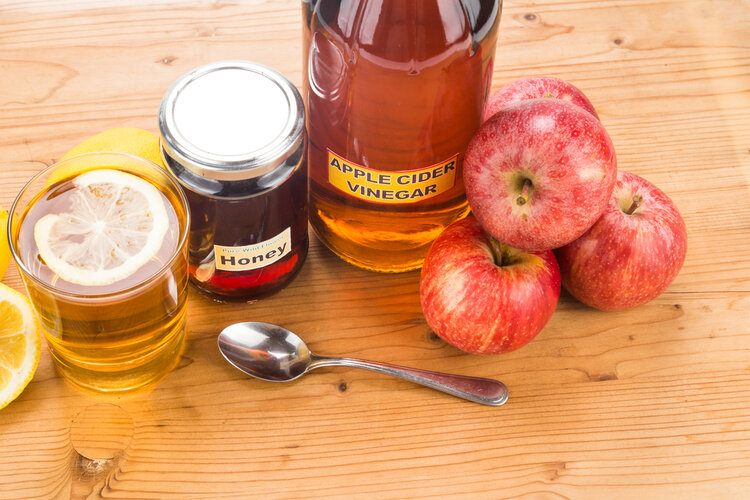
Apple Juice
Guinea pigs should not drink store-bought apple juice. There are many other preservatives, sugars, and harmful elements processed into the juice. The amount of sugar in it is dangerous for them.
If you have homemade apple juice, they can drink small amounts. The juice should be diluted with water and be at the stage before any sugars or other supplements are added.
Conclusion
Spoiling your guinea pig is fun and allows you to make your pet happy. Bonding with your guinea pig by giving them little treats is satisfying. However, the health of your pet should always come first. Feeding them apples in moderation is healthy and an excellent treat for your guinea pigs.







